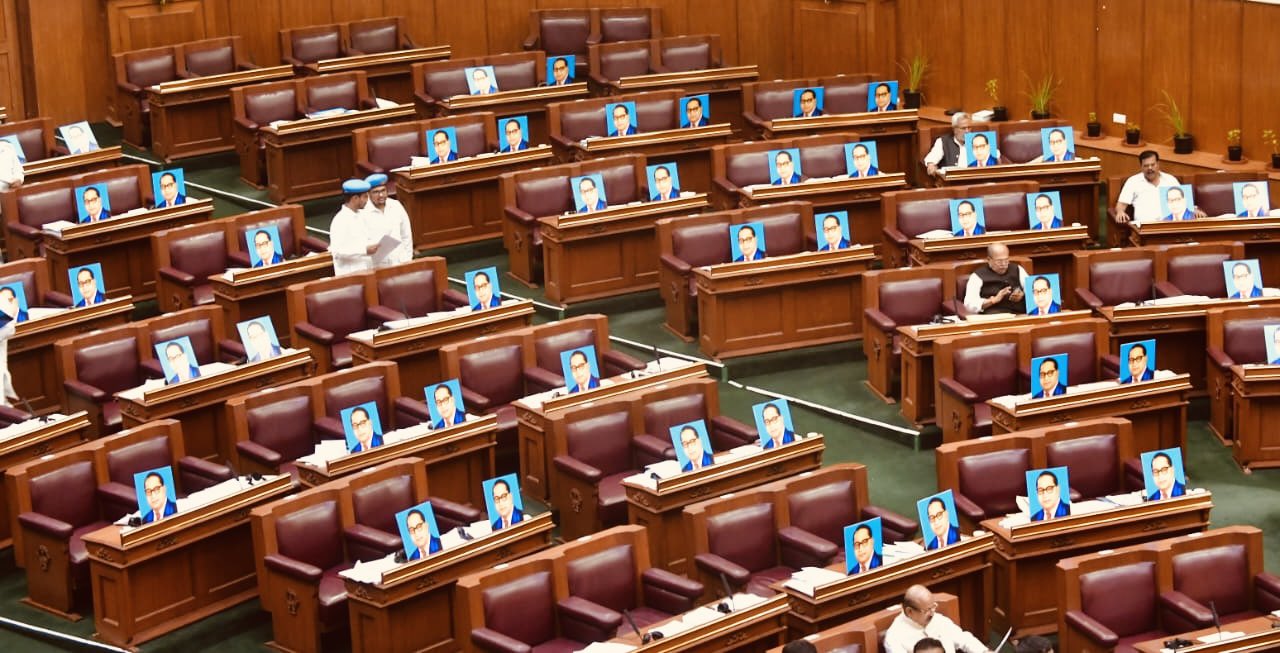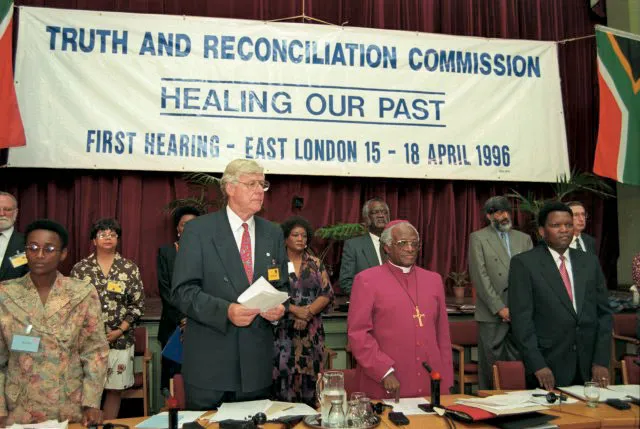North Delhi’s Wazirpur, where factories meet the hopes of the underprivileged, recently witnessed the inauguration of Swabhiman flats, promising shelter for slum dwellers of the area. However, the supposed beneficiaries, who should have been celebrating, are instead staring down an uncertain future: those who have possession papers have not been allowed to take possession of their flats and around 552 families have been struck off the list for not having pre-2014 voter ID cards.
On 3 January 2025, Prime Minister Narendra Modi inaugurated the ‘Swabhiman Apartments’ in Ashok Vihar’s Jailorwala Bagh. Sanctioned in 2009 and tendered in 2014, the Delhi Development Authority (DDA) project was later adopted by the Pradhan Mantri Awas Yojana (Urban) under its in-situ development initiative. Built at a cost of Rs 421 crore, the Swabhiman Apartments comprise 1,675 flats across three highrise blocks, each with a basement. The project aims to restore the dignity of slum dwellers and promises improved living standards with modern infrastructure, community facilities and sewage treatment plants. Residents of the nearby Jhuggi-Jhopri (JJ) (slum) cluster who have been deemed eligible to own a Swabhiman flat have invested Rs 1.74 lakh each, including Rs 30,000 in a five-year maintenance fund. Each flat has been valued at over Rs 25 lakh. However, despite paying the required amount, they remain uncertain about receiving possession anytime soon. Frustrated with delays and not expecting to get possession of their flats for at least a year, and fearing the bulldozers arriving to clear their slums, many have packed their bags to return to their villages and hometowns.
“We have sent our wives and daughters back to the villages – that’s the only option,” said Jitender Singh (52), who has spent over 30 years in a small single-room jhuggi (slum) with his wife and four young children. Like him, hundreds of slum dwellers have packed their bags to return to their hometowns, because they haven’t been allotted a flat or alternative housing or because their allotted flats are even smaller than their jhuggis or because they fear they will be evicted from their homes before they are able to take possession of their flats.
DDA’s allocation policy and the exclusion of target beneficiaries
The long delays in the surveys and documentation by the DDA has only increased their suffering. Multiple surveys were conducted until 2021 and there were frequent changes in DDA’s allotment cut-off policy, which finally led to the elimination of around 552 families. The revised policy restricted eligibility to those with voter ID cards issued before 2014. Many residents claim they lost their older documents and obtained new ones, which the DDA didn’t accept.
While some families have water and electricity bills proving their residency, they lack an EPIC card (Electoral Photo Identity Card). Many never registered to vote because the government or the political parties paid scant regard to their predicament until the work on the Swabhiman Apartments project, sanctioned in 2009, began in 2017. Others found it too cumbersome to update their address every time it changed after frequent visits to their hometowns. Some simply lost their cards. Yet, their children, now adults, hold voter ID cards –most of them issued after 2014.

These elders, often illiterate and unfamiliar with bureaucratic processes, worked hard to educate their children, ensuring they had proper documentation. But despite their efforts, the government has done little to improve their living conditions. Many families say their names were removed at the final stage despite assurances and producing multiple certificates, leaving them with nowhere to go.
Now, the very children they raised with hope are stepping up. Many young residents of this cluster are students at the University of Delhi, and those studying law are actively exploring legal options to fight for their families’ right to housing. Their education has equipped them to challenge the system, which their parents, bound by poverty and red tape, never could.
Even those residents of the JJ cluster who have possession papers for the flats are caught between a rock and a hard place. The DDA has allotted each family a 35-36-square-yard flat, which they say is inadequate for larger families, and has asked them to vacate the slum cluster within three months. Jitender, who is preparing for the marriage of his two sons, is worried that his six-member family will soon grow to eight. “How will we and our daughters-in-law live under the same roof? Families will continue to grow – we have no choice but to migrate,” he says. Residents complain that the government hasn’t considered their needs, arguing that these flats will be even more congested than their JJ clusters. Fearing forced eviction – similar to what happened during the G20 Summit – they prefer leaving on their own terms.
According to the Economic Survey of Delhi (2023-24), nearly one-third of Delhi’s population lives in substandard housing, including 675 slum clusters that often lack basic amenities like clean water, sanitation and reliable electricity. There are over three million slum dwellers, who make up about 15 per cent of Delhi’s electorate. In the 2020 Assembly Elections, at least 15 constituencies – mainly in the eastern, northeastern, and southeastern parts – had victory margins of under 10,000 votes, making slum voters a crucial factor in the electoral battle.
The inauguration of the Swabhiman flats by the prime minister a month before the Delhi Assembly Elections didn’t catch anyone by surprise. Jitender remarked, “Flats are not given for our better future, but for the better future of political parties.”
Most of the residents of the Jailorwala Bagh slum cluster who deposited the required ₹1.74 lakh did so by taking loans from village headmen or selling off land in tier-3 cities. For many, parting with their hard-earned assets just to get the possession papers for a tiny Swabhiman flat is disheartening. Yet, what troubles them more is the uncertainty that lingers even after full payment.

Their fears stem from vague but persistent concerns about the alleged DDA scam at Kalkaji Extension in 2022 – ironically, another project inaugurated by Modi. Beneficiaries are now barred from even seeing their allotted flats in Jailorwala Bagh, reinforcing their doubts.
For a few days before and after Modi’s visit, beneficiaries could inspect the flats, but now the gates are shut for everyone. DDA officials say that even candidates from the constituency for the Assembly Elections were barred from entry due to recent theft incidents. The beneficiaries now fear further delays or the worst, cancellations. They have endured this uncertainty since 2014.
Although this slum redevelopment project was tendered in 2014, the construction began only in 2017. Surveys continued until 2021, and some construction work remains unfinished even today, with officials claiming it will be completed in the coming months.
Around 552 families in the Jailorwala Bagh slum cluster don’t even have possession papers. This, when only 1078 families have been given possession papers, meaning, of the 1675 flats, 597 are either yet to be assigned or have been allotted to residents of other slum clusters, which would go against the original ‘in-situ’ project plan. They have no option but to return to their ancestral villages and towns. In 2023, the Delhi High Court ruled that slum dwellers couldn’t be denied rehabilitation merely for not possessing pre-2014 electoral records, but residents claim the order is being ignored. Some families have filed a fresh petition against the DDA in the Delhi High Court.
They are exhausted. They are not highly educated or politically influential. They are just ordinary people fighting for a home. The Swabhiman Apartments project has failed in its objective of restoring dignity to slum dwellers. Instead, it has pushed many to the brink of migration, forcing them to leave the city they call home.
(Edited by Anil Varghese/Amrish Herdenia)





